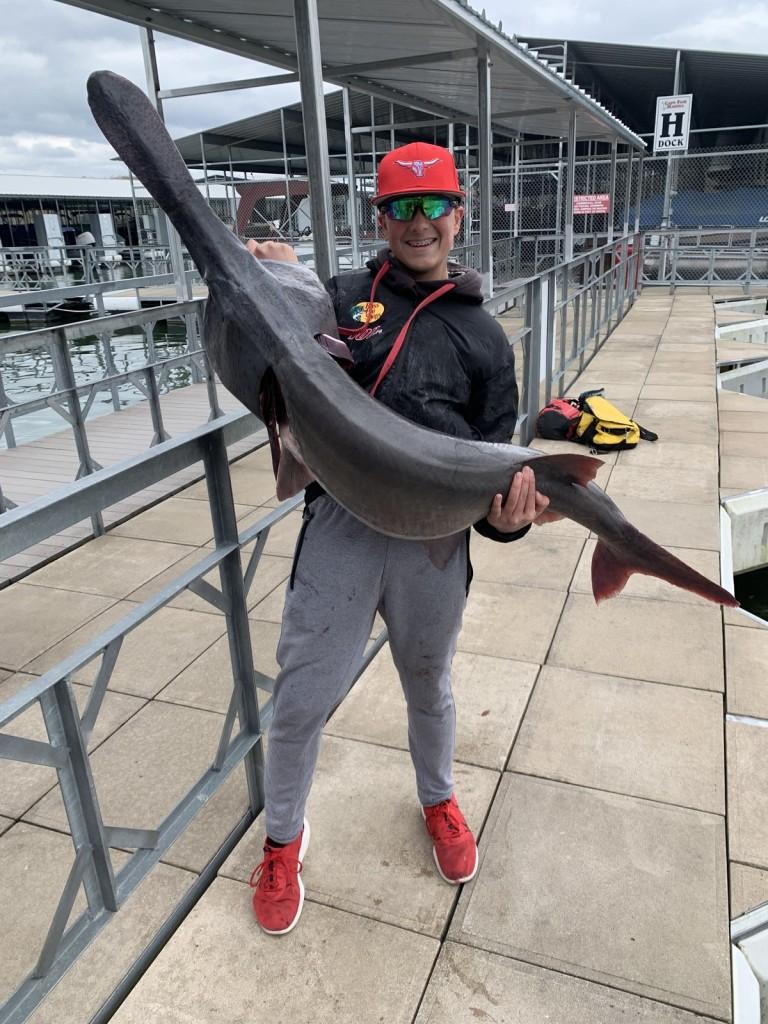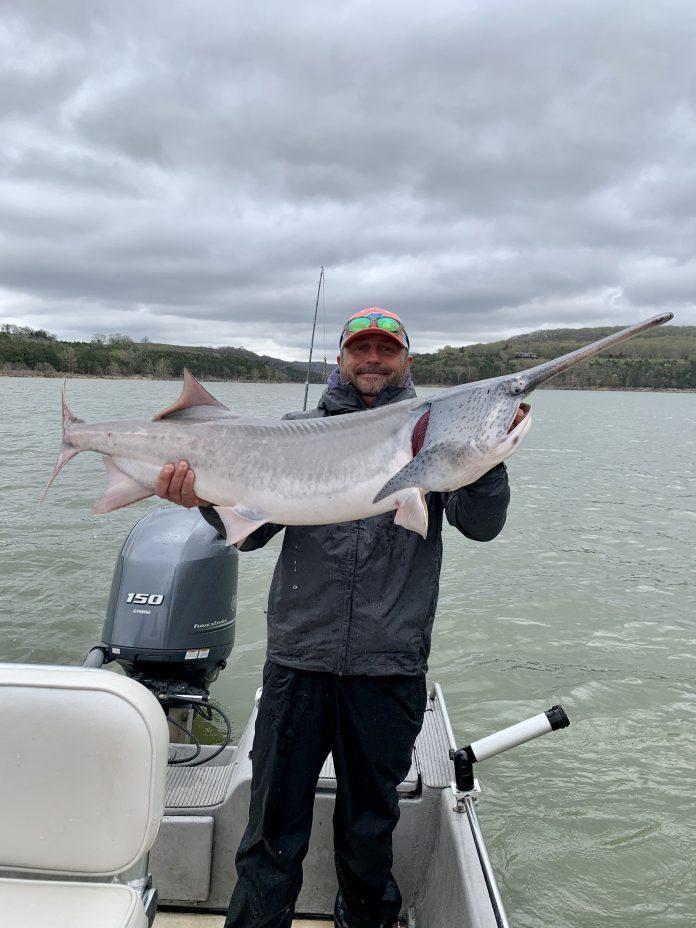Howdy fellow fisher(wo)men! Spring has sprung and the water is right to start catching a few gilled creatures. While being raised a bass/crappie fisherman, I was recently lucky enough to take my dad and son on a trip for a prehistoric creature, the good ole’ paddlefish. Known by the masses as “Spoonbill” this species has been in existence since before the dinosaurs. Fishing for these monsters is not as easy as lobbing out a bobber and a minor on an old Zebco 33, however.
Paddlefish are like sharks, meaning their entire body is full of cartilage instead of bones. Their long snout (hence, “paddle”) guides the fish smoothly through the water, feeding with a wide-open mouth straining plankton throughout its gills. The average paddlefish weighs about 40 lbs, although Oklahoma set the world record (TWICE!) last year at Keystone Lake here in Oklahoma at 151 lb 14 oz giant! The prehistoric beast had a band that determined the fish to be over twenty-five years old.
While plentiful in Oklahoma, the species is not the easiest to catch. Considering they do not eat meat, there are not any baits to use to try to catch one. Instead, a snagging technique is utilized, where an individual has a sturdy rod/reel with a 12 oz treble hook and significant weight. Depending on whether river/dam fishing or lake fishing determines the best method to hook into one of these giants. For some, “trolling” (dragging multiple rods with multiple treble hooks) behind a boat at a slow rate of speed works best; others cast out these same types of rods/reels/hooks across a river during the spawning season to snag their fish during the spawning season. Lastly, a technique utilizing a “live scope” is efficient, in which an underwater camera locates the fish and then the angler attempts to hook the fish using the same equipment mentioned above.

As opposed to many thoughts and opinions paddlefish are delicious. Unlike normal fish, their texture is similar to a pork chop. While fried cubes will treat you right, my favorite so far is seasoned and left in an air fryer for approximately 20 minutes. Their eggs are considered “poor man’s caviar” and are highly regulated in many states, and equally as delicious.
As with any hunted/fished species, the state Department of Wildlife heavily regulates limits to ensure the species remain in existence. Be sure to check your local regulations and comply to ensure these primitive creatures can be sought for years to come.






